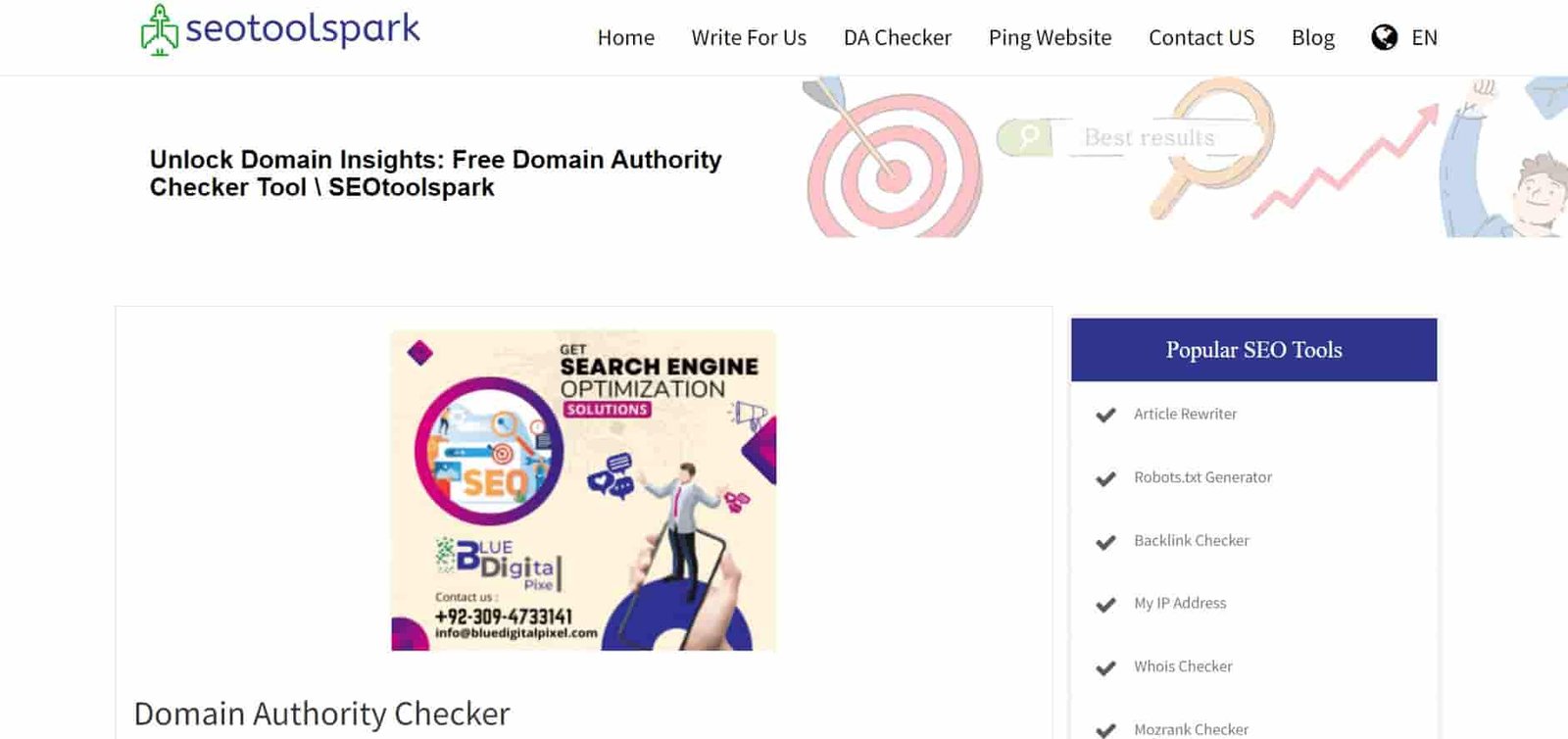


Search engine optimization (SEO) can seem complicated with all the different factors to consider. However, understanding two key metrics - Domain Authority (DA) and Page Authority (PA) - can significantly simplify evaluating and improving a website's SEO.
In this comprehensive guide, we'll explore what DA and PA are, why they matter for SEO, and how to effectively use bulk DA and PA checkers to optimize your site.
Domain Authority (DA) is a score developed by Moz that predicts how well a website will rank on search engine result pages (SERP). It ranges from 1 to 100, with higher scores indicating a greater ability to rank.
DA is one of the most widely used metrics in SEO because it provides a quick snapshot of a domain's overall authority and trustworthiness. Google wants to rank the best and most reputable sites for any given keyword. High-DA websites tend to be seen as more respectable because they have earned a more significant number of quality backlinks over time.
Some key benefits of high Domain Authority:
Ways to improve your Domain Authority include:
Monitoring and improving your DA should be an ongoing focus in your SEO efforts. Understanding the DA of competitor sites in your space also provides a benchmark to compare against.
While Domain Authority reflects the whole site, Page Authority (PA) is a score specifically for the ranking ability of individual URLs on a domain. Also on a 1-100 scale, Page Authority helps identify the specific pages on your site that are underperforming for SEO.
For any given keyword target, ranking high requires optimizing the most relevant URLs - those that should logically rank for that term based on topical relevance and context. The Page Authority metric helps quickly identify which pages need work to better compete for rankings against pages on other domains.
Some ways to improve the Page Authority of target URLs include:
In addition to boosting Page Authority, it's also important to identify pages that are underperforming relative to their potential. Sorting pages by DA and PA makes it easy to find pages that have high Domain Authority but relatively low Page Authority, indicating they should be better optimized to capitalize on the domain's overall strength.
The best way to start using Domain Authority and Page Authority in your SEO strategy is to get baseline metrics for your site. Here are some options for bulk-checking DA and PA for free:
The MozBar is a free Chrome extension from Moz that provides DA and PA scores right in your browser. You can easily check metrics for any page you visit while browsing the web. This makes it fast and simple to get DA and PA data for your site and competitors.

Our free DA and PA checker tools here at SEOToolsPark allow you to perform bulk analysis of Domain and Page Authority. Simply enter a list of URLs and we'll return the DA, PA, and other metrics for each in a spreadsheet. Check up to 20 URLs at a time for free without any registration.
Moz's Link Explorer offers a free trial that lets you analyze a limited number of URLs for DA and PA. You can perform bulk analysis of up to 25 pages in a CSV file. Link Explorer also provides additional link data to help improve your backlink profile.
The SEMrush Sensor browser extension delivers Page Authority data right on Google search results pages. This makes it easy to analyze the PA scores for the top-ranking sites for your target keywords. Understanding the PA levels sites need to rank can help inform your own optimization efforts.
Here are some tips for effectively using Domain Authority and Page Authority checkers as part of your ongoing SEO strategy:
Ongoing tracking in a spreadsheet can help spot trends over time and quantify progress. Getting in the habit of regularly checking DA and PA will help better inform both your overall SEO roadmap and your optimization decisions on individual pages. With DA and PA, backlink monitoring is also very important.
A) Generally, a good Domain Authority score is between 40 to 60+. Scores above 70 are exceptional and indicate a very strong website authority. However, acceptable scores vary greatly by niche and market. Checking competitor DA scores provides the best benchmarks for a given space.
A) It takes time and effort to substantially increase Domain Authority. Quick boosts are often a sign of "shortcut" techniques like low-quality link building. Focus on an ethical, white hat link-building strategy to steadily improve DA through relevant, reputable sites over time.
A) While Domain Authority reflects the authority and link equity passed to the entire site, Page Authority is a per-page metric reflecting the ranking potential of individual URLs. Optimizing target pages with lower PA can help improve keyword rankings.
A) Page Authority is one indicator of ranking potential, but many other on-page and off-page factors also matter. That's why sometimes pages with lower PA may rank higher than pages with higher scores. All key SEO elements still need to be addressed.
A) Not necessarily. First, try optimizing those pages to improve PA. Redirecting should only be used for consolidated content, not as a shortcut. Otherwise, you may simply pass the weak PA to another URL while losing any existing equity.
A) A higher Page Authority than Domain Authority is common and not inherently bad. It simply indicates strong optimization efforts on that specific page to build links and authority. The page is outperforming the overall domain's reputation.
A) Possibly, but not always. If a new owner fails to earn backlinks and authority under their ownership, the domain will slowly lose relevancy in Google's eyes. Any passed equity fades over time without consistent optimization.
A) No. While Google has a Domain Rating metric, Domain Authority was created by Moz as a tool to estimate search ranking potential. Google does not endorse or recognize DA in its algorithm. However, optimizing to improve DA generally correlates with higher visibility.
Understanding and tracking Domain Authority and Page Authority scores provides valuable insight into your website's overall SEO standing and individual page performance.
Regularly leveraging free bulk DA and PA checker tools allows you to identify issues and opportunities to focus your optimization efforts. You can better allocate time based on pages that need link building, content updates, or consolidation to boost authority.
Domain Authority also gives you a benchmark to evaluate your progress relative to competitors. Monitoring DA and PA over time becomes an essential metric in measuring success.
Hopefully, this guide provided a solid introduction to maximizing the use of Domain Authority and Page Authority as part of your SEO strategy. Don't leave easy wins on the table. Start checking DA and PA today to uncover weaknesses hurting your search visibility and inefficiencies underserving your users.